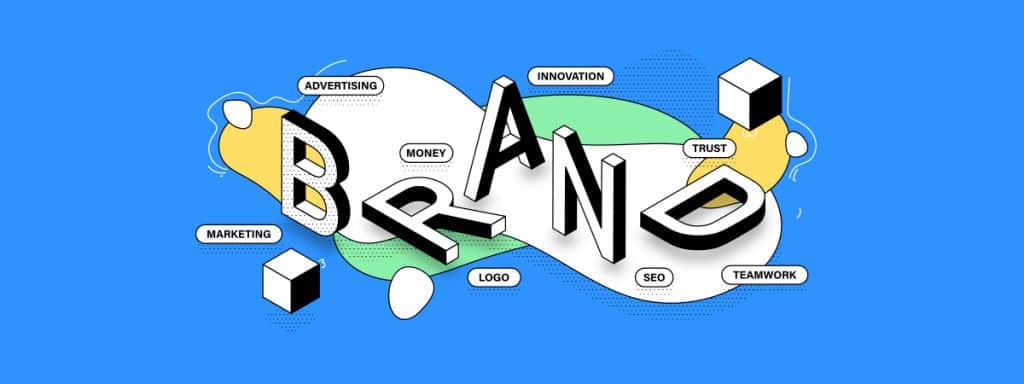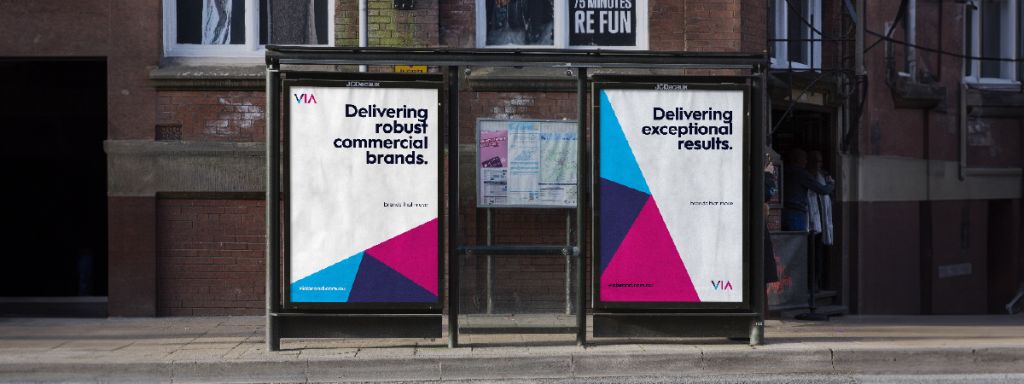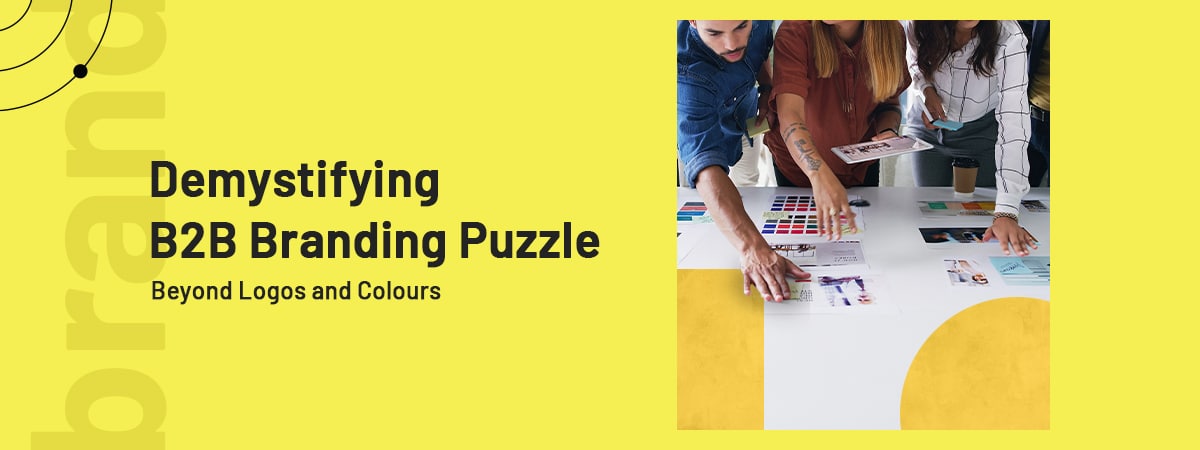Have you ever looked at a famous logo or a striking colour scheme and thought, “That’s a powerful brand!”? If you have, you’re not alone. It’s a common misconception that branding is primarily about eye-catching visuals. However, this belief is just the tip of the branding iceberg, and it’s high time we unravel this puzzle.
In the world of marketing and business, the terms “brand” and “branding” often get tangled in a web of confusion. Many people associate a brand solely with its visual elements – the logo, the colours, and the typography. While these visual components play a crucial role, they’re merely the outer layers of a much deeper and intricate concept.

The Essence of a Brand: Beyond Just a Logo
As we traverse the ever-changing realm of web content management systems, a transformative path emerges. Out with the old templates that rigidly controlled web pages, and in with the novel approach of modular web design. Unlike traditional systems, this approach isn’t just about web pages; it’s about nurturing the diverse ecosystem of content and embracing the freedom of creative expression.
The Psychology of Branding: Winning Hearts and Minds
Consumer psychology is a powerful tool that businesses use to their advantage. It’s the study of how individuals make choices, form preferences, and build emotional connections with brands. Here’s where it gets interesting:
1.Emotional Branding: People don’t just buy products; they invest in experiences and emotions. Brands create emotional connections by evoking specific feelings and emotions in consumers. Whether it’s trust, excitement, or nostalgia, effective branding strategies leverage psychology to ensure the brand resonates on an emotional level.
- Example: Think about Coca-Cola. Their branding isn’t just about the refreshing taste of a soft drink; it’s about the happiness and togetherness that sharing a Coke with friends and family represents.
- Statistics: According to a study by the Harvard Business Review, emotionally connected customers are more than twice as valuable as highly satisfied customers in terms of lifetime value.
2. Cognitive Bias: Cognitive biases are mental shortcuts that humans use when making decisions. Brands understand these biases and incorporate them into their branding efforts. For example, the “anchoring bias” can be used to make consumers perceive a product as a better deal when compared to a higher-priced alternative. Smart branding employs these biases ethically to influence consumer choices positively.
- Example: Apple masterfully uses the “anchoring bias” by introducing new products at higher price points and then gradually discounting them. This makes consumers perceive them as great deals even though the original prices were high.
3. The Power of Social Proof: Influencers play a pivotal role in the psychology of branding. People are more likely to trust a brand or product recommended by someone they follow and admire. Brands leverage influencer marketing to build trust and credibility. By partnering with the right influencers, they tap into the psychological phenomenon of “social proof.”
- Example: The skincare brand Glossier skyrocketed to success, in part due to its strong presence on Instagram with influencers showcasing their products in real-life scenarios, garnering trust and interest from consumers.

Influencers as Brand Ambassadors: The Influencer Marketing Approach
In recent years, influencers have become a driving force in the world of marketing and branding. Here’s how they do it:
1. Authentic Partnerships: Brands collaborate with influencers whose values align with their message. Authenticity is key in building trust among the influencer’s followers.
- Case Study: A sustainable fashion brand’s collaboration with a local environmental activist influencer resulted in a 30% increase in brand trust among environmentally conscious consumers.
2. Storytelling Magic: Influencers are skilled storytellers. They craft narratives that resonate with the brand’s message, creating a compelling brand story that consumers can connect with on a personal level.
- Impact: A survey by the Influencer Marketing Hub revealed that 61% of consumers were more likely to trust recommendations from influencers over traditional advertising.
3. Amplifying Reach: Influencers have a vast and engaged audience, extending the brand’s exposure beyond traditional marketing channels. This not only increases brand visibility but also helps tap into niche markets.
4. Building Trust: Influencers are seen as trusted sources of information. When they endorse a product or brand, their followers are more likely to believe and act on it.

The Branding Advantage in Brisbane and Beyond
So, why is effective branding vital for businesses looking to elevate their brand game? It’s not just about understanding the nuances of brand vs. branding or consumer psychology; it’s about dedication to creating brands that stand the test of time.
1. Local Insights: Businesses understand the unique nuances of their markets. They know the local culture, trends, and consumer behaviour, enabling them to create brands that resonate specifically with their audience.
- Example: Research revealed that Brisbane consumers had a strong preference for eco-friendly products, leading to the successful launch of an eco-conscious brand in the country.
2. Holistic Approach: Brands take a holistic approach to branding, considering every touchpoint a consumer has with a brand. This ensures consistency and a seamless brand experience, from the website to the packaging and everything in between.
3. Data-Driven Decisions: Brands don’t rely on guesswork. They use data-driven insights to inform their branding strategies. By analysing consumer behaviour and market trends, they make informed decisions that drive brand success.

In summary, the world of branding goes far beyond the surface-level aesthetics of logos and slogans. Businesses understand that true branding is about creating a deep emotional connection with consumers, influenced by the psychology of decision-making. And in a digital age where influencers wield tremendous power, businesses harness the storytelling prowess of influencers to amplify these connections and build brands that truly matter.
So, whether you’re a business in the Brisbane or anywhere else in Australia, remember that it’s not just about having a brand; it’s about understanding the psychology behind it.
Viabrand® is an experienced branding agency that specialises in brand positioning that delivers effective solutions for your brand. Book a complimentary, no-obligation 30-minute call to learn more
